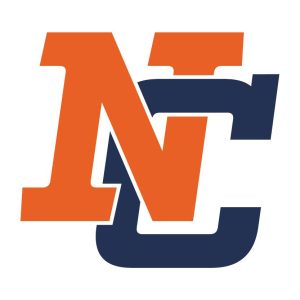 The Northland College Board of Trustees on May 1 voted to approve a refocused model for the college which will allow the institution to remain open.
The Northland College Board of Trustees on May 1 voted to approve a refocused model for the college which will allow the institution to remain open.
This decision follows a comprehensive effort to secure a future for the college, including a fundraising campaign and financial exigency process.
The approved model draws from the proposals and ideas shared with the board. It includes adjusting the number of majors offered to eight, restructuring the organization, and securing necessary funding to address the short-term deficit and long-term stability needs of the college. It also includes a continuation of Northland’s current intercollegiate athletics program, which has both a men’s and women’s NCAA Division III hockey team.
“The board is extremely pleased a sustainable path forward for Northland College has been found,” said Ted Bristol, chair of the Northland College Board of Trustees. “An extraordinary collaborative effort with faculty and staff to reprioritize and restructure, combined with historic-level, transformative donor gifts, made it possible.”
“Today’s news is thanks to the incredible work done by faculty and staff in a very short amount of time,” added Chad Dayton, Northland College president. “Together with the board, a plan was built to keep Northland College open and serving students in a way that is aligned with our mission and the values that define us. I am immensely grateful to all involved for securing the future of this incredible college.”
The refocused model is grounded in the following core elements:
— Significantly focusing the curriculum. Going forward, the college will offer a total of eight high-demand, mission-aligned majors and focused offerings: natural resources, business, education (emphasis options in teacher education, outdoor education, and environmental education), biology (chemistry minor), psychology and social sciences, Earth studies (emphasis options in water science, geology, and climate Science), environmental humanities, and sustainable community development. These programs stay true to Northland’s liberal arts and interdisciplinary studies commitment while accommodating student demand and focused outcomes.
— Restructuring the organization and operations. The model will require a right-sized academic and operational structure that aligns with the refined curriculum. Significant changes to the operational budget and necessary faculty and staff organizational adjustments will help the College realize approximately $7 million in savings.
— Securing additional short-term funding. In addition to the savings realized in the restructured curricular and operational plan, the Board secured several million dollars in additional funds during the exigency process to bridge the short-term deficit.
— Creating long-term stability. The long-range projection of the refocused model puts the college on track for long-term stability. Projections look at data on enrollment trends, operating expenses, and funding sources. The College will also continue to explore new revenue streams.
The Path to May 1 Decision
Financial exigency, declared by the Board on April 4, was Northland’s final attempt to save the college. The board and college leadership collaborated with Northland faculty and staff to develop streamlined curricular and operational budget models in the weeks following the exigency announcement. The college also received several transformational gifts during the process that allowed for continued exploration.
“To save Northland, we needed to significantly reduce the deficit in the short term and develop a compelling, financially feasible and sustainable model for the long term,” said Bristol. “Achieving this was an iterative process that included reviewing all ideas including the submitted faculty ad hoc proposal, validating them against the budget, and refining as needed to arrive at a workable plan. Now we need to execute on this plan.”
“Every step of this process and each decision has been made with the goal of maintaining Northland’s mission for as many students as possible,” Dayton added. “We want to thank our faculty and staff partners and the entire campus community for its tremendous outpouring of support. The board and leadership thoroughly explored all options, proposals, and ideas, and were thoughtful and intentional with every choice made.”
“It is not lost on us that today’s announcement could have gone a very different direction,” said Bristol. “Many colleges like Northland are being forced to make difficult decisions, and we’ve seen many closures in recent years—even in recent weeks. We feel fortunate to be sharing a path forward despite the realities of declining enrollment and rising costs.”
Supporting Campus Transitions
This academic year will conclude as planned. For students who decide to transition out of Northland, many teach-out and transfer options and campus support resources are available. Prospective students will be notified immediately, and if they need to make alternate plans due to the curriculum changes, any deposits paid will be refunded.
“The board of trustees is grateful for the dedication, resilience, and support of everyone in the Northland community, not only in these last few weeks, but since Northland’s founding in 1892,” said Bristol. “Northland’s legacy is its people—those who have supported the institution for decades and the students, alumni, faculty, and staff who will continue to advance Northland’s critical mission into the future.”



